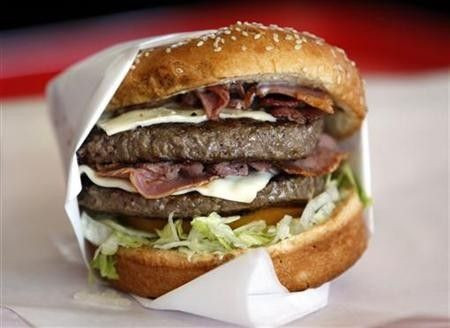Fast Food Leads to Depression; Study Reveals
Unhealthy Food Habits Guide People to Depression

Unhealthy eating habits of people can cause depression and the recovery of depression patients will be on the basis of their routine eating habits, said Felice N Jacka, PhD, a researcher at the Deakin University in Australia, BBC reports. Jacka is studying in the field of medicine under Epidemiology, Psychiatry and Psychosomatic Medicine. A part of her treatment involves the intake medicines. However, she does not go through the childhood history, professional backgrounds, family conditions etc. of her patients. She takes a different approach by asking about their regular food diet. A recent study published by her and her colleagues reveal that fatty, sugary diets are unhealthy for the mind and body alike. Once this type of diet is followed, it creates certain reactions in the brain that leads to an increased risk for depression.
This leads to the bottom line that people are eating their way towards depression. Although the link is still not thoroughly investigated, the US Defence Department has tried to raise funds to begin sending nutritious meals to a group of former soldiers. This will help to check the authenticity of the research and may control or lessen "the suicide rates in army veterans."
The European Union has launched a 9M euro project called MoodFood Project to be able to find multiple nutrients that can enhance and influence the mind. These new revelation doesn't mean a new diet should immediately be used and eradicate the existing treatments and medicines. Because in Jacka's volunteer patients, they are still taking their medications while changing their eating habits to achieve better, faster results.
Following a healthier diet may lower the risk of depression. For quite some time, researchers and scientists have looked at the cause of depression and found that it could be passed on from genetic information. However, in the recent couple of decades, scientists have discovered the connection of the mind and body. It was discovered that patients with depression had an increased amount of protein called cytokines. This protein triggers depression or depression-like symptoms.
"The people become depressed even before they know that they have cancer, and it ties in with the high levels of cytokines" says Michael Maes at Deakin University in Australia, who has pioneered work on the biological basis of depression.





















